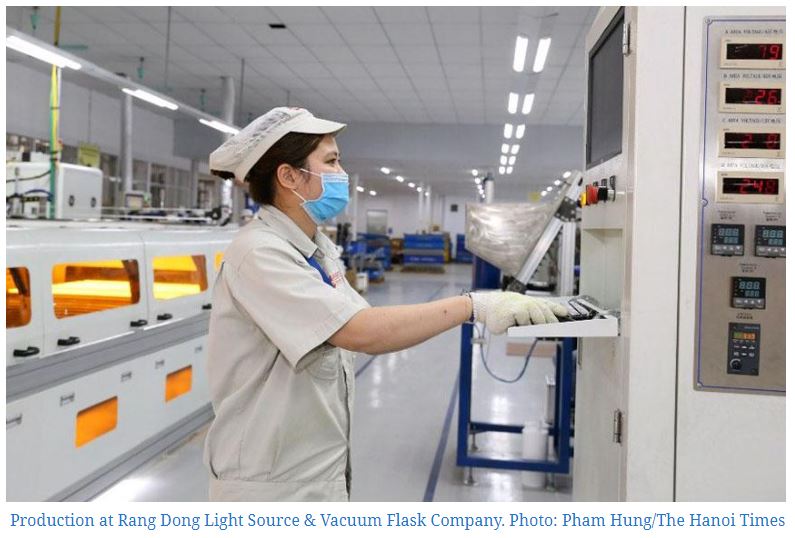Vietnam’s manufacturing output grows again
With market demand improving and new orders returning to growth, optimism continued to grow regarding production prospects for the year.
The S&P Global Vietnam Manufacturing Purchasing Managers’ Index (PMI) rose back above the 50.0 no-change mark in February, thereby signaling a renewed strengthening in the health of the manufacturing sector following three months of decline.
At 51.2, the index was up from 47.4 in February and pointed to an improvement in business conditions.
“Improving demand conditions both domestically and internationally breathed new life into the Vietnamese manufacturing sector during February, snapping a three-month soft patch around the turn of the year. Output, new orders, employment, and purchasing activity all returned to growth as business confidence strengthened on an improving demand outlook,” said Andrew Harker, Economics Director at S&P Global Market Intelligence.
“One lingering area of concern, however, is inflation, with both input costs and selling prices rising at the fastest rates in eight months in February. Firms will be hoping to see these pressures ease as the year progresses to make sure demand improvements can be sustained,” he added.
Central to the strengthening in the health of the sector were signs of improvement in market demand. This helped firms to secure new customers and an expansion of new orders during February, the first in four months. Moreover, the solid increase in new business was the sharpest since last August. New export orders rose more quickly, expanding for the second month running on the back of a brighter international demand environment.
 |
Rising new orders fed through to renewed increases in manufacturing production, employment, and purchasing activity midway through the first quarter. The modest increase in output represented a marked improvement from the sharp declines seen around the turn of the year. Underlying data suggested that the rise in output was mainly centered on investment goods producers.
Both employment and purchasing activity increased for the first time in four months during February, and were up modestly, helping firms to keep on top of workloads.
With market demand improving and new orders returning to growth, optimism regarding the year-ahead outlook for production continued to strengthen. Sentiment improved for the third month running and was the highest since September 2022. Confidence was also stronger than the series average. Some panelists added that the loosening of Covid-19 restrictions in China would also boost growth over the coming year.
The rate of input cost inflation quickened for the sixth month running in February, reaching its highest since June 2022 on the back of rising charges by suppliers and material shortages. In turn, manufacturers also increased their selling prices at the fastest pace in eight months. While price pressures intensified, there were more positive signs in terms of supply-chain performance. Suppliers’ delivery times were shortened for the second month running amid reports of smoother transportation and reduced congestion. Although modest, the latest improvement was the most pronounced since November 2019.
The use of inputs to support the growth of production meant that stocks of purchases decreased in February despite an increase in input buying. That said, the fall was modest and softer than in January. A similar trend was seen in stocks of finished goods, which decreased to the smallest extent in the current five-month sequence of depletion.
|
Source: https://hanoitimes.vn/vietnams-manufacturing-production-returns-to-growth-323062.html


 Thailand
Thailand




